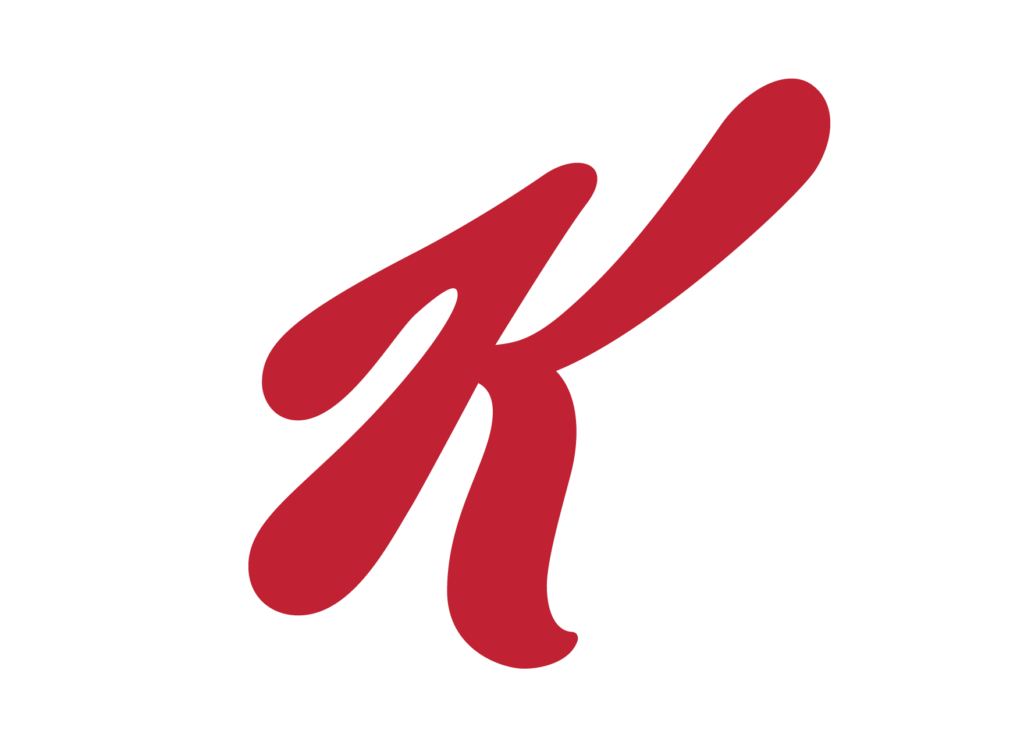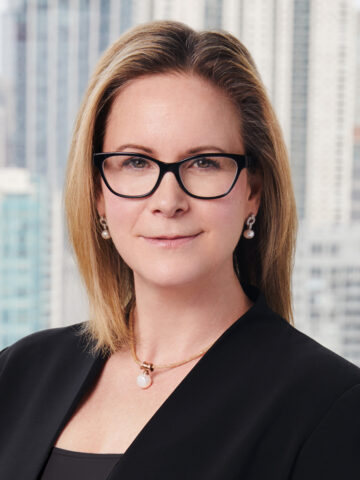A spinoff that offered enormous opportunity for a 118-year-old company also posed challenges for executives determined to chart a new course while honoring the legacy of their founder.
As the maker of popular treats like Pringles, Pop-Tarts and Cheez-It, and iconic cereals like Frosted Flakes, Froot Loops and Special K, Kellogg Company has long been a beloved house of brands with a powerful legacy. Yet, Wall Street wasn’t fully appreciating the stock’s value. While other snack stocks were trading at 18 times earnings, Kellogg Company sat five points lower. Wall Street saw Kellogg Company as a cereal business that also sold snacks—in reality, snacks made up more than 80% of the portfolio.
For other companies, the solution would have been simple: spin off the slower-growth business. On paper, the argument for that strategy certainly applied to Kellogg Company. “The industrial logic of a spinoff was compelling, nearly inescapable,” says Steve Cahillane, then Chairman and CEO of Kellogg Company. But any proposal to spin off the North American cereal business, says Cahillane, was sure to raise a question—an extraordinary question—among employees: “What would Mr. Kellogg think?”
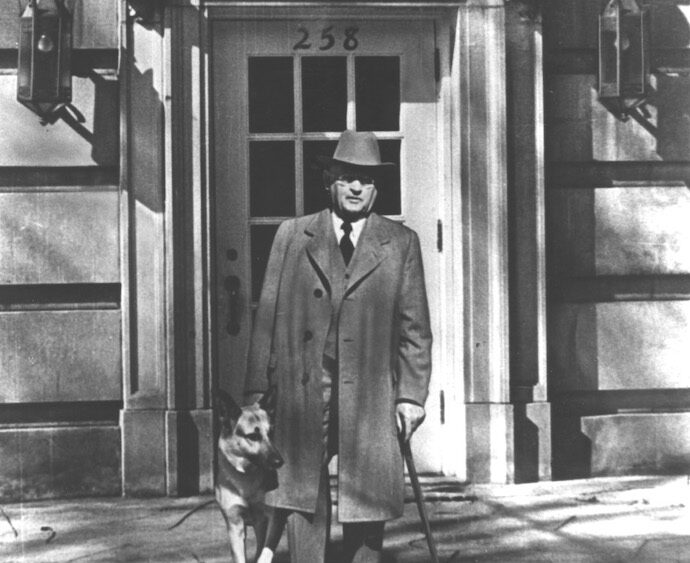
W. K. Kellogg with his seeing eye dog in front of his foundation’s offices in 1949.
Nearly 120 years after he founded Kellogg Company, the memory of William Keith Kellogg remains influential. “Mr. Kellogg’s spirit lives in the company,” says Cahillane, “in ways that you have to really be part of the company to understand.”
“He’s in our bricks,” says Gary Pilnick, who rose to Vice Chairman and Chief Legal Officer after joining Kellogg Company 24 years ago and now serves as the Chairman and CEO of the recently spun-off North American cereal business.
Mr. Kellogg was the founder of the cereal industry, and cereal remained the product for which Kellogg Company was best known. Would Mr. Kellogg approve of the company he’d founded spinning off the likes of Kellogg’s Corn Flakes, Kellogg’s Froot Loops, Kellogg’s Rice Krispies?
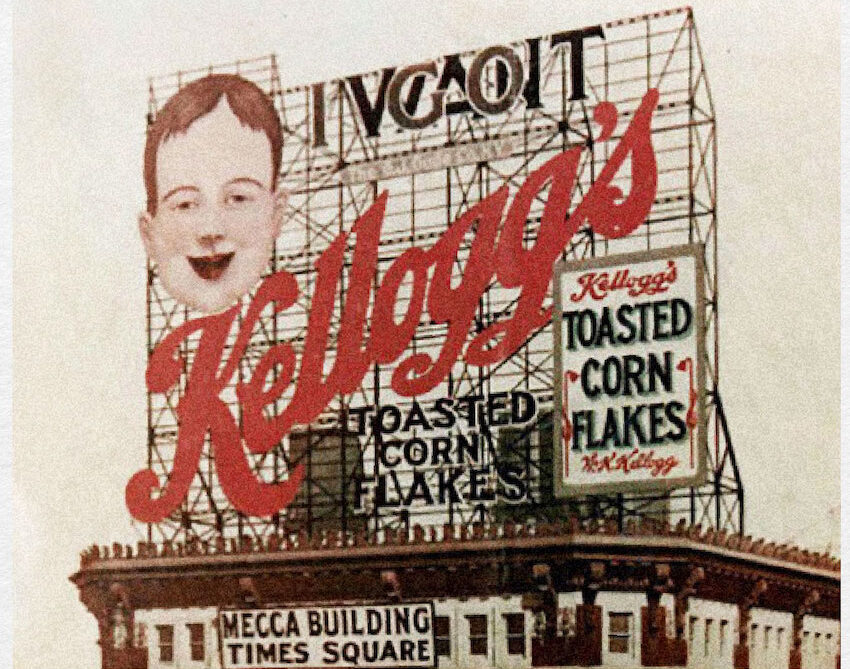
In a word, yes—but only if done the right way. For Mr. Kellogg, the right way often wasn’t the easiest. The right way required continuous communication and complete transparency with employees, communities and other stakeholders. Employees who saw themselves as part of the Kellogg family could hardly be informed of the spinoff in a press release. It wasn’t enough for the move to benefit everyone. Everyone deserved the opportunity to ask questions. Employees and other stakeholders needed to feel welcome and important on this journey. They needed to know that the Kellogg’s name would remain on packaging across the globe. They needed to know that the Kellogg legacy would endure at both new companies, a promise embedded in each new company’s name: Kellanova, featuring that iconic red “K” that is so recognizably Kellogg, and WK Kellogg Co, a direct nod to the company’s visionary founder.

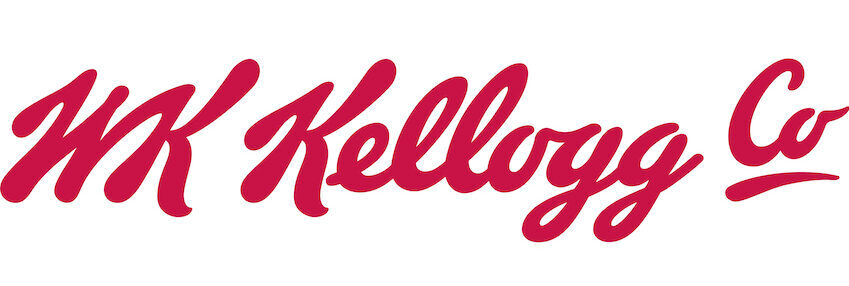
In October 2023, the two new companies debuted on the New York Stock Exchange. While the global headquarters of Kellanova is now in Chicago, both Kellanova and WK Kellogg Co maintain a strong presence in Battle Creek, Michigan, and remain the pride of the city.
Cahillane, now Chairman and CEO of Kellanova, is proud of the painstaking effort he and his colleagues made to win the support, trust and confidence of employees at both companies.
Having recently marked the first 100 days as two independent public companies, both Kellanova and WK Kellogg Co are focused on delivering on this next chapter. Kellanova has re-introduced itself with a vision to be “the world’s best-performing, snacks-led powerhouse.” WK Kellogg Co is able to turn all of its attention to its products, commercial activities, and supply chain infrastructure, without having to compete for resources.
Corporate spinoffs tend to be reported as dry transactions, focused on the business and operational complexities of executing the separation. An altogether more dynamic, more interesting, more humane portrait emerges from the interviews that Brunswick Partners Jayne Rosefield and Monica Gupta conducted with Steve Cahillane, Chairman and CEO of Kellanova, and Gary Pilnick, Chairman and CEO of WK Kellogg Co. Personal essays by Kris Bahner, Senior Vice President, Chief Global Corporate Affairs Officer for Kellanova and Stacy Flathau, Chief Corporate Affairs Officer for WK Kellogg Co, offer concrete communications lessons from their spinoff experiences, along with moving detail about the transformation journey Kellogg Company took to become Kellanova and WK Kellogg Co.
More from this issue
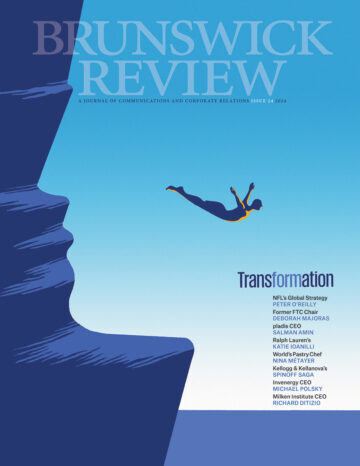
Transformation
Most read from this issue

Transformation of Search

